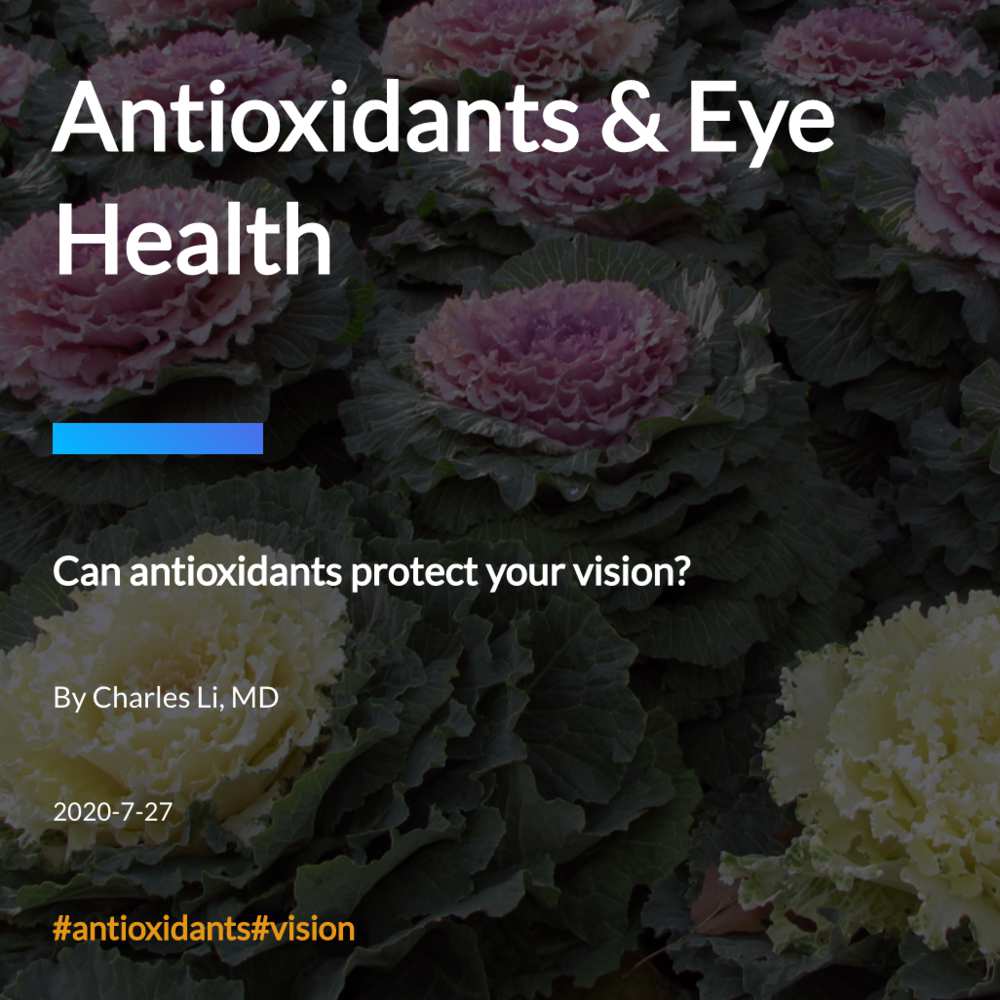The intricate nexus between antioxidants and ocular health offers a plethora of insights into how dietary components can profoundly impact vision. In a world increasingly threatened by environmental stressors and lifestyle choices, understanding the role of antioxidants in preserving visual acuity is paramount. This discourse elucidates how these biochemical compounds confer protective benefits on the visual system and challenges us to reconsider our dietary habits for optimal eye health.
Understanding Antioxidants: Nature’s Protective Agents
Antioxidants are molecules that inhibit the oxidation of other substances, thus playing a pivotal role in neutralizing free radicals—unstable atoms that can cause cellular damage. The delicate tissues of the eyes are particularly susceptible to oxidative stress due to their exposure to light, environmental pollutants, and metabolic byproducts. Consequently, a deficiency in antioxidants can lead to significant ocular disorders, including age-related macular degeneration (AMD), cataracts, and diabetic retinopathy.
Among the prominent antioxidants are vitamins A, C, and E, as well as compounds like lutein, zeaxanthin, and beta-carotene. Each of these elements possesses unique properties that contribute to visual health. For instance, lutein and zeaxanthin, carotenoids found predominantly in green leafy vegetables, have been shown to filter harmful blue light and reduce oxidative stress within the retinal cells. Furthermore, vitamins C and E collaborate synergistically to protect the lens of the eye from oxidative damage.
Mechanisms Underpinning Antioxidant Action
The pathophysiological mechanisms by which antioxidants exert their protective effects on vision are multifaceted. A principal pathway involves the stabilization of cellular membranes. Cellular membranes are critical for maintaining the structural integrity of retinal cells; oxidative stress can compromise their functionality. Antioxidants mitigate this risk by scavenging free radicals, thereby preserving membrane fluidity and preventing cellular apoptosis.
Furthermore, antioxidants modulate inflammatory processes. Chronic inflammation has been associated with various ocular diseases. Antioxidants such as omega-3 fatty acids exhibit anti-inflammatory properties and have been shown to alleviate the incidence of dry eye syndrome, a condition affecting millions worldwide. By downregulating inflammatory cytokines, these compounds provide a dual mechanism of action—defending against oxidative damage while also curtailing ocular inflammation.
The Role of Diet: A Proactive Approach to Eye Health
Given the substantial evidence supporting antioxidant benefits, it is imperative to consider dietary modifications that prioritize these nutrients. A diet rich in fruits and vegetables is foundational in providing a wealth of antioxidants essential for sustaining vision health. Berries, nuts, and grains are excellent sources of these compounds and should be incorporated actively into daily consumption.
Beyond individual foods, the overall dietary pattern plays a considerable role in determining antioxidant levels within the body. The Mediterranean diet, characterized by high intake of fruits, vegetables, whole grains, and healthy fats, has been positively correlated with a decreased risk of AMD. The synergistic effects of these components underscore the importance of holistic dietary practices rather than isolated nutrient supplementation.
Supplementation: Necessity or Excess?
The surge in market availability of antioxidant supplements raises critical questions about their necessity and efficacy. While supplements may offer a concentrated dose of certain antioxidants, emerging research suggests they may not replace the protective benefits afforded by whole foods. The bioavailability of antioxidants from natural sources often surpasses that of synthetically manufactured supplements. Pathologies associated with excessive antioxidant supplementation, particularly in the form of high-dose vitamin E, have prompted caution regarding their use.
Moreover, it is essential to recognize that antioxidants are only part of the equation. A balanced, nutrient-rich diet that extends beyond antioxidants encompasses the full spectrum of vitamins and minerals crucial for eye health, such as zinc and omega-3 fatty acids. Such integrative dietary practices can significantly enhance ocular resilience against degenerative optic conditions.
Specific Antioxidants and Their Visual Health Benefits
The array of antioxidants and their contributions to vision health merits in-depth exploration. Lutein and zeaxanthin are particularly noteworthy; accumulating evidence suggests these carotenoids can significantly reduce the risk of cataracts and AMD. They operate primarily by absorbing damaging blue light and limiting its penetration into deeper ocular structures.
Moreover, vitamin A plays a transformative role in visual pigment synthesis. Retinal, which is a derivative of vitamin A, is essential for converting light into nerve signals in the retina, thus enabling vision. Deficiencies can lead to night blindness and other visual impairments. Similarly, vitamin C acts primarily as an antioxidant within the aqueous humor, and its presence in the eye is critical for combatting oxidative stress imposed by ultraviolet light.
Another remarkable compound, zinc, though not an antioxidant in the strictest sense, synergizes with vitamin A to maintain visual function. Zinc’s role in transporting vitamin A from the liver to the retina is indispensable, emphasizing the intricate interplay of nutrients necessary for optimal vision.
Conclusion: The Challenge for Optimal Eye Health
In conclusion, the evidence supporting the protective role of antioxidants in vision health is compelling. As we encounter an age characterized by increased screen time and environmental toxins, it is vital that individuals consciously incorporate antioxidants into their diets. By prioritizing a diverse range of fruits and vegetables, embracing wholesome dietary patterns, and discerning the necessity of supplementation, one can proactively safeguard their ocular health. The responsibility does not rest solely on practitioners; it is incumbent upon each individual to challenge their current nutritional regime. Are you prepared to make dietary choices that will fortify your visual health for years to come?
